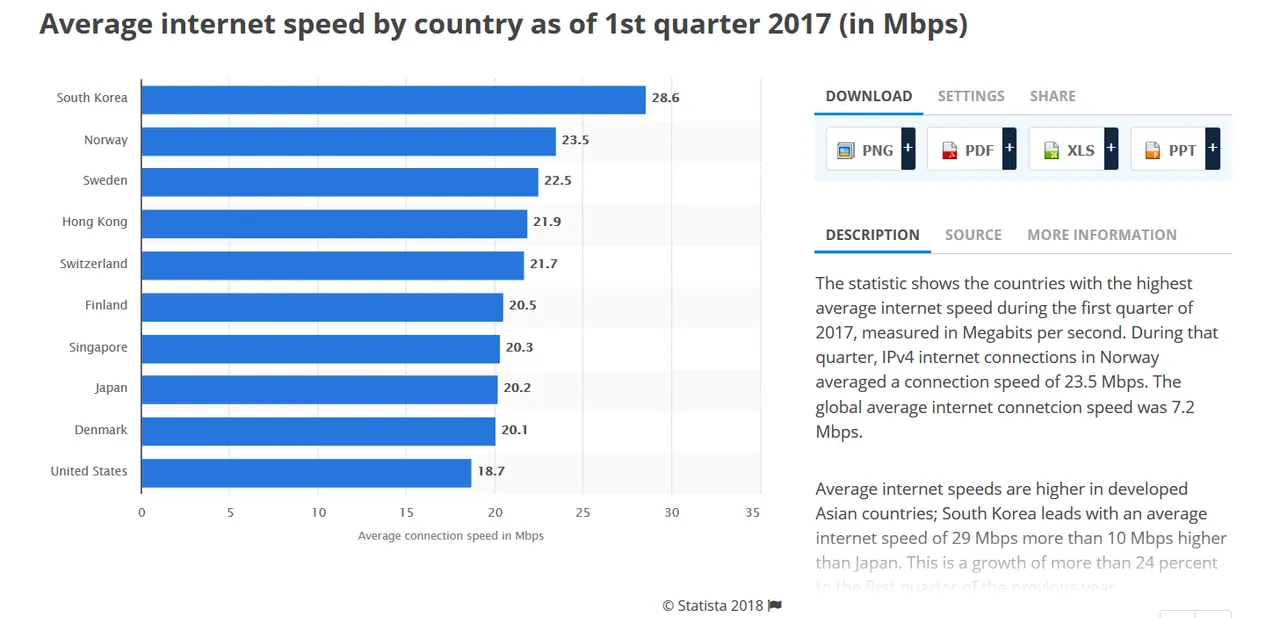Over the last decade, radical advancements were made in all areas of technology. One area that seems to be lagging, at least in the United States, is people's ability to access the internet.
In that time period, a number of countries passed the United States in terms of average internet speed.
Here is a chart from Statista that reflects the top countries as of last year.

The challenge for a lot of consumers is they have limited choices. Many areas only offer a single provider of high speed internet, usually broadband. While some areas do have a couple options, commonly AT&T, there are still parts of the U.S. where it is not cost effective to offer that service.
This all could be changing.
The mobile carriers are all gearing up for their next generation service. Dubbed "5G", this mobile service promises to offer speeds that far exceed what is presently received. Systems are slated to go in later this year with Verizon announcing they intend to bring Houston online.
This has the potential to serverely disrupt the delivery of the internet. Here is a sector that was long dominated by the cable companies. They ended up being the main ISPs after the originators were bought out. In some places, the phone company was also able to start offering service but to get the high speeds required a large investment in running fiber.
In the U.S., there are primarily 4 mobile phone carriers, AT&T, Verision, T-Mobile, and Sprint. If approved, this could go to three with T-Mobile and Sprint looking to merge. These carriers could seek to enter the markets where broadband is not offered or go to those areas that challenge the cable companies' dominance.
Competition is not going to come cheap. Establishing 5G networks is going to require a lot of money. This technology relies on microwave signals meaning that antennas need to be close together. Construction will be on telephone poles and even the side of buildings. To cover an entire city is going to necessitate a lot of hardware.
Eventually, all markets are going to have another provider. It is just going to take time. By 2020, there will be only a handful of markets built out by the mobile carriers. This coincides with phone makers also having to develop the hardware since existing mobile phones will not work with 5G.
The next couple years will see the start of the "pipe" wars. Another couple other players loom on the horizon in Elon Musk and Richard Branson. Both are involved in projects that intend to blanket the planet with satellite internet.
How this affects the cable companies is going to be interesting.
